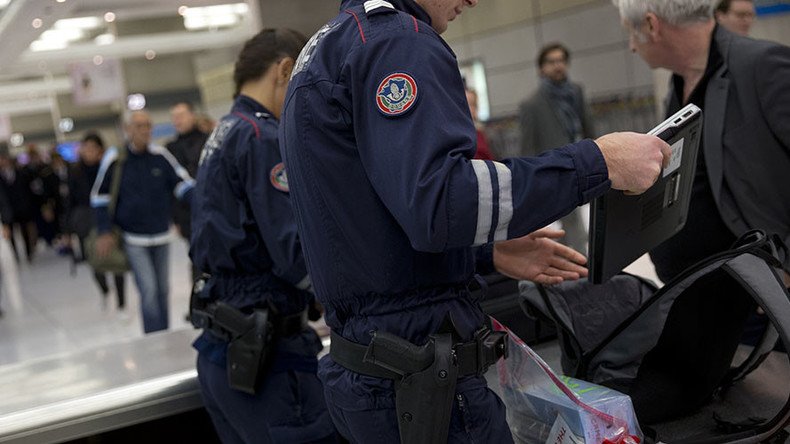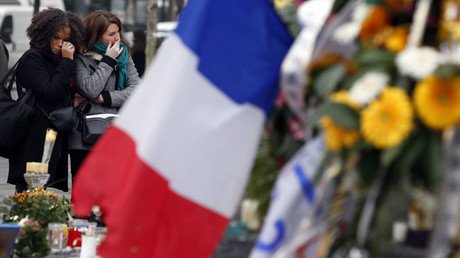70 Paris airport workers have security badges revoked over radicalization fears

Seventy workers at Paris airports suspected of being radical Islamists have had their security passes revoked since last month's terror attacks, which killed 130 people and injured 352 others. It comes as France remains under a state of emergency.
The workers, employed at Charles de Gaulle and Orly airports, had their red badges revoked following a screening that took place after the November 13 terror attacks in Paris. The screening involved searching the contents of around 4,000 employees' lockers in an attempt to identify potential terrorists.
"Nearly 70 red badges were withdrawn after the attacks, mainly for cases of radicalization," Augustin de Romanet, the chief executive of ADP, the company that runs the two Paris airports, told French media.
Red badges are given to employees working in secure zones of the airports, for instance as baggage handlers, aircraft cleaners and suppliers.
Some airport workers suspected of links to radical Islam were placed under house arrest under the France's state of emergency laws, which gives the government the power to do so.
However, those issued with red badges had already gone through police checks – some of them multiple times, according to De Romanet.
“To be issued with a red badge, you have to be cleared by police, and if you work for a company that carries out security checks of in-flight luggage, you need three police checks,” he said, adding that around 85,000 people have secure-zone clearance in the two airports. Most of them work for airlines or subcontractors.
It comes after French security sources said that Islamist militants killed in a police raid five days after last month's attacks were planning to attack Charles de Gaulle Airport, France's largest international air hub.
It's not the first time that Paris airport employees have had their red badges revoked on suspicion of terrorist links. It emerged following last month's attacks that dozens of airport staff had their security passes revoked after the January attacks on Charlie Hebdo satirical magazine. However, many continued to work despite being on an intelligence watch list for potential Islamist extremists.
Fears over the radicalization of airport personnel intensified after the October crash of a Russian passenger jet in Egypt, which authorities believe was brought down by a bomb smuggled on board by an airport employee.
There has also been concern about radicalization of bus, metro and rail employees in the Paris area. Samy Amimour, one of the attackers who blew himself up in the Bataclan rock venue in Paris, had worked as a bus driver despite being on an intelligence watch list.
Meanwhile, French authorities took two people into custody on Tuesday over the January attacks on Charlie Hebdo and a Jewish supermarket, police sources told AFP. The two are being questioned over weapons found in an arsenal belonging to grocery store attacker Amédy Coulibaly. One of the two men, Claude Hermant, was already being held over an investigation into arms trafficking, according to the prosecutor's office in Lille. He is believed to have links to the extreme right in northern France. The other person arrested is Hermant's partner.
The latest moves come as France remains under a state of emergency, which allows to government to conduct warrantless searches, put people under house arrest, seal the country's borders and ban demonstrations. France is reportedly aiming to change its constitution to allow a state of emergency to last for six months, although such laws have been slammed by critics who accuse the government of abusing its powers.














